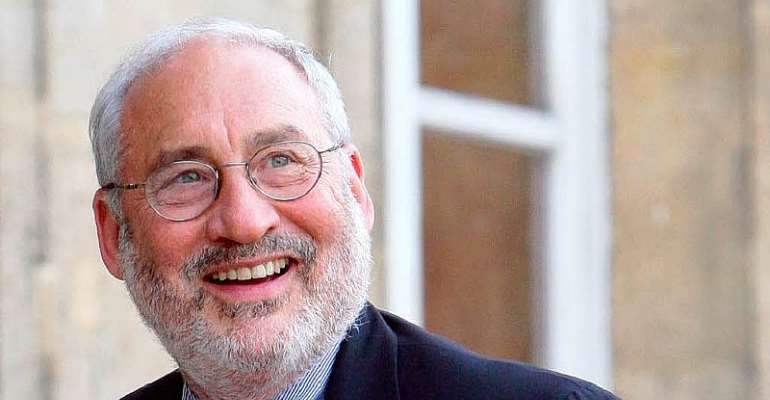The paradox of Friedman and Stiglitz’s Economics Nobel Memorial Prizes

It is accepted in academic economics for two economics to hold different economic approaches when dealing with an economic phenomenon. However, the conflict in the approaches must not be significant to an extent of being a paradox in ideology or a paradox in economic civilisation. The current history of economics has such a paradox in relation to the decision of the Swedish academy to award the Nobel memorial economics prize to Milton Friedman in 1976 and Joseph Stiglitz in 2001. Friedman was a diehard pure market economist and Stiglitz a committed supporter of controlled markets economics and state-centric economic planning and systems.
Friedman is known for his firm stand against corporate social responsibility. He argues that the free market dynamics are enough to perfect fair distribution of resources in any economic system. Friedman was firm about his support of need for the governments to move to a classically liberal society, where free markets would help nations and individuals in the long-run and fix the efficiency problems often incurred in capitalist societies like the US. The economic thoughts that anchored Friedman for the Nobel Prize were his argument in the book Capitalism and Freedom in which he pointed out that governments should stay out of market related matters , that the government should only involve itself when absolutely necessary for the survival of its people and the country. According to Friedman the best of a country's abilities come from its free markets while its failures come from government intervention in the market processes.
Twenty five years after giving the Nobel memorial economics prize to Friedman, the Swedish academy went against its previous intellectual appreciations only to choose in 2001 to give the same prize to Joseph Eugene Stiglitz who is totally opposite in economic ideology to Friedman. Stiglitz is known all over the world for his radical arguments against freeman markets. He is a diehard supported of extensive government control of market processes.
In fact Stiglitz argues in his book The Great Divide that relying solely on business self-interest as the means of achieving the well-being of society and economic efficiency is misleading. He argues in his other book Public Sector Economics that stronger norms, clearer understandings of what is acceptable and what is not, and stronger laws and regulations are very important avenues to be taken by modern governments in reducing the ever widening and menacing gap between the rich and the poor, an economic condition which Stiglitz argues that it has been generated by failures of the pure market based economic systems.
Unfortunately, the Swedish academic makes this decision without being cognizant to the fact that the economic problem of the world in 1976 was not different from the economic problem of the world in 2001. Mass Poverty and extreme riches in the hands of very few people was the economic problem in the days of Friedman the same way it is in the days of Stiglitz. What was needed and still is need by now is the governments of world to identify the best economic approach that can lift mankind from the world-wide challenge of brutal poverty. Thus, Nobel Academy is obliged with technical duties as well as moral duties to recognize the best economic thoughts that are capable to salvage mankind from the looming abyss of poverty.
In the above the case of Stiglitz and Friedman, the Nobel academy was supposed to recognize specific type of economic thoughts that are of use in solving the current economic challenge of cryptic poverty in which majority of world population’s wallow. The Nobel academy was not supposed to juggle and gambol indecisively between the market-centric economic systems of Friedman and the state–controlled economic planning models of Stiglitz.
Alexander Opicho writes From, Lodwar, Kenya [email protected]
